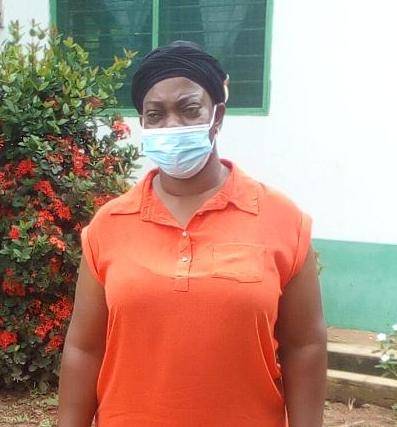
The lack of household toilets is the major health threat confronting the Oti Region which must be addressed urgently to prevent open defecation and save the people from diseases, the regional Director of Environmental Health, Mrs Marie Sybil Boison has warned.
According to her, the absence of the facilities made residents engage in open defecation that anytime it rained, the faecal matter washed into the Oti River, the Volta Lake and other water bodies as the their sources of survival.
Speaking in an interview at Dambai, the Regional Director said as a result the residents were exposed to typhoid as the major environmental health disease in the region, and stressed that the only way to address the challenge was to ensure that all households built their own toilets.
Mrs Boison appealed to non-governmental organisations (NGOs) working in the area of health to turn their attention to the Oti Region to help address health challenges relating to environmental health currently militating against quality health delivery in the region.
She said the NGOs could support the various municipal and district environmental health offices with technical support that would enable the environmental health personnel to provide the needed technical assistance to the people in their respective areas to build household toilets.
According to her, the Kadjebi District was the only district in the region where open defecation was not experienced, and commended the United Nation International Children Fund (UNICEF), which was providing toilet facilities for schools in the district, as well as supported menstrual hygiene for school girls by providing them with sanitary pads and education on personal hygiene for the girls.
Mrs Boison said her outfit had intensified public education on environmental health to help prevent the people from suffering from diseases associated with poor environmental health practices.
She stressed that fishmongers were educated on personal hygiene when handling and preparing fish for sale, to ensure that fishes displayed in the market for sale would not be contaminated, and the education took place every two weeks.
According to her, the attention was particularly paid to the hygienic practices at the various markets in the region, citing the Dambai market for instance, Mrs Boison said traders travelled from Accra, Tema, Ho, Kpando and other parts of the country to the Oti Region to conduct their business activities, therefore it was important to keep the markets clean to protect people from environmental related diseases.
Mrs Boison said regular visit to communities for education was limited due to lack of vehicles at all the Municipal, Districts and the Regional offices of the Environmental Health, and but added that she engaged the services of motorbikes to work daily, and to embark on public education in communities.
She said her municipal and district officers also employed the same means of transportation, which he said was a major limitation to public health education in the region, and appealed to the government and organisations to help provide vehicles to the Regional Environmental Health office, municipal and district offices to promote their work.
FROM SAMUEL AGBEWODE, DAMBAI







